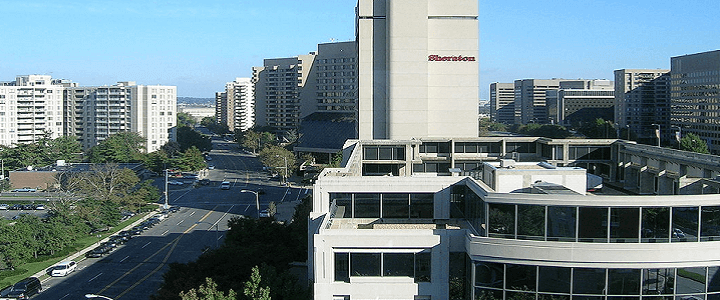Earlier this month Thumbtack, a website and app for local professionals, released the results of its 2019 Small Business Friendliness Survey, the largest continuous study of small business perceptions of local government policy in the U.S. The survey ranked the best and worst cities in the states nationwide on a number of factors, including licensing requirements, tax regulations, and labor and hiring regulations.
For the 2019 study Thumbtack surveyed more than 5,000 local small business owners in 49 states and 44 cities to evaluate how well state and local governments support entrepreneurs in starting, operating and growing a small business.
“Small business owners are active, involved members of their communities and local economies,” said Kellyn Blossom, head of public policy at Thumbtack, via a statement. “Our survey shows the economic impact of health care, housing, and transportation are top of mind for them. With 96% of small business owners planning to vote in the 2020 elections, they could have a big impact on the outcome.”
According to the survey 76% of small business owners feel there is enough economic opportunity in their community for their business to succeed. While Arkansas topped the list of states for small businesses overall, both Virginia and Maryland were in the top 10 – with the former coming in at number two and the latter at number nine.
Spotlight Virginia
The Old Dominion State had an A+ rating in this year’s survey, up from a B rating just a year ago. The state scored a B+ for the ease of starting a business, and A+ for regulations, licensing, and employment, labor & hiring. However, Virginia only scored a C rating for both easing of hiring and for training & networking programs. What is noteworthy is that last year the state had an A- rating for ease of hiring, which suggests that the job market has gotten much tighter.
However, in the 2018 survey Virginia had an F rating for training & networking programs, which suggests that there has been vast improvement over the past year in these services.
Virginia, which was chosen to be the second headquarters for retail/tech giant Amazon, was also chosen as America’s 2019 Top State for Business in CNBC’s 13th annual study – the fourth time it topped the list, but the first time since 2011. CNBC noted that it has a world-class workforce, high-performance education system and many business-friendly regulations. Defense spending, which has been on the rise, accounted for nearly 12% of Virginia’s total economy – more than any other state – according to the National Conference of State Legislatures.
The CNBC study also found that Virginia offers the best workforce in the country, where nearly 38% of adults have a bachelor’s degree or higher according to the U.S. Census Bureau – and that placed the state in the top 10 overall for educational attainment. Moreover, Virginia has the nation’s fourth highest concentration of crucial science, technology, engineering and math (STEM) employees in the country – and this made up 9% of the workforce in 2018.
Spotlight Maryland
According to the 2019 Small Business Friendliness Survey the Old Line State had an A rating for overall friendliness, and an A+ rating for starting a business. However, it scored just a C+ for regulations and tax code, and a B- for employment, labor and hiring and licensing. Yet, the state saw vast improvement from last year when it had a B+ overall friendliness rating, and a B- rating for ease of starting a business.
Maryland was ranked 31 on CNBC’s 2019 Top State for Business study, which found that the state has a world-class workforce and low unemployment rate, but that it was an expensive place to do business. It scored a D- for the cost of doing business on the CNBC rankings, and was 46 out of 50 states.
Despite those facts Maryland still has the largest percentage of federal workers of any state, and is home to more than 60 federal agencies. It is a hot spot for aerospace and defense, and the majority of the country’s top aerospace companies and defense contractors have offices in Maryland – making it ideally located for firms that support those industries.



